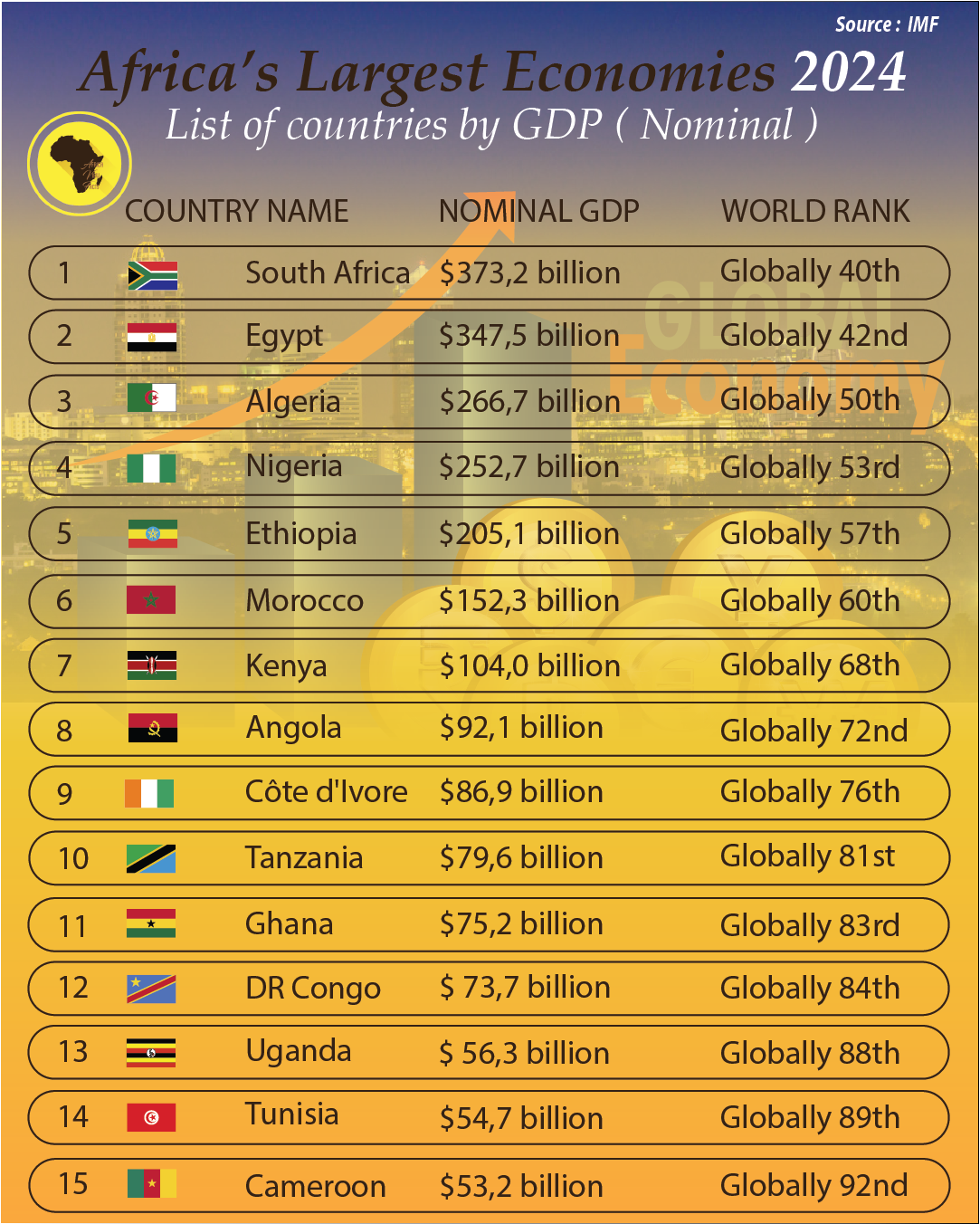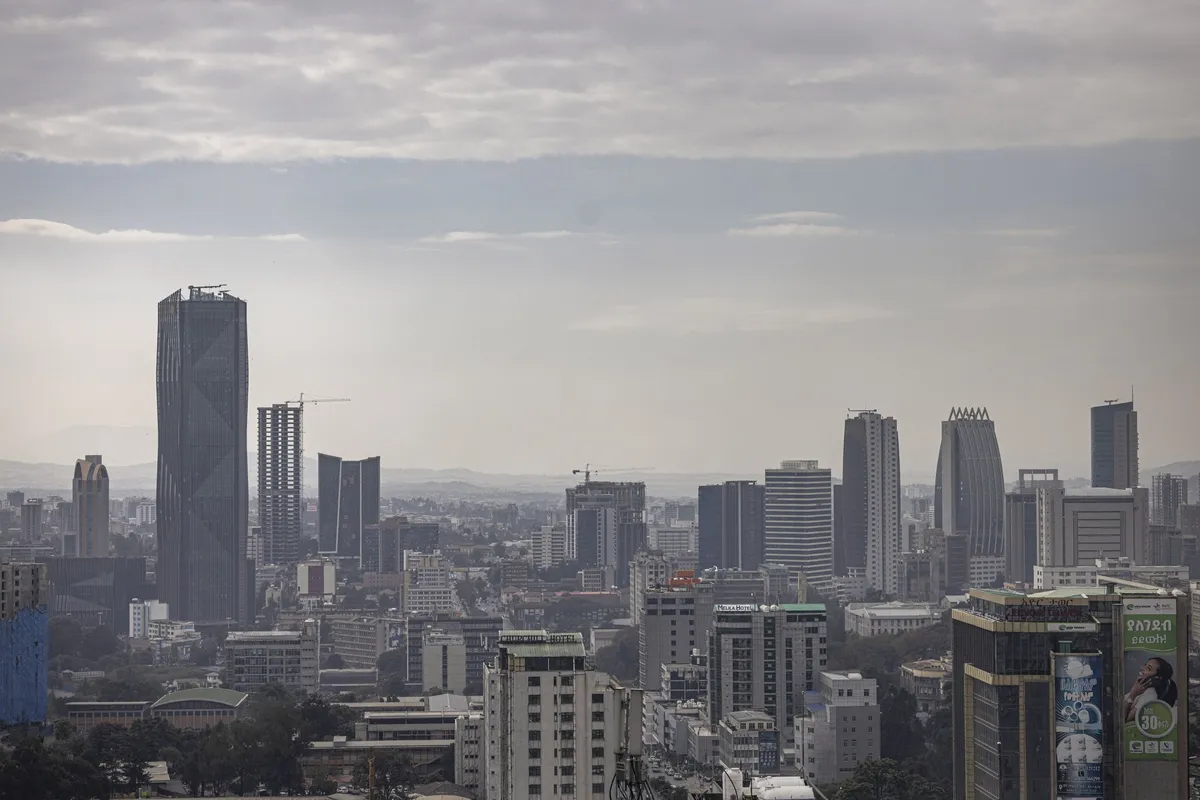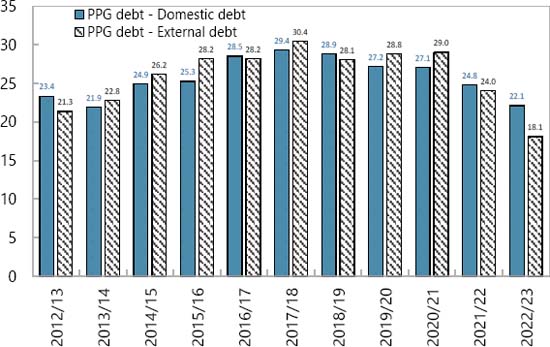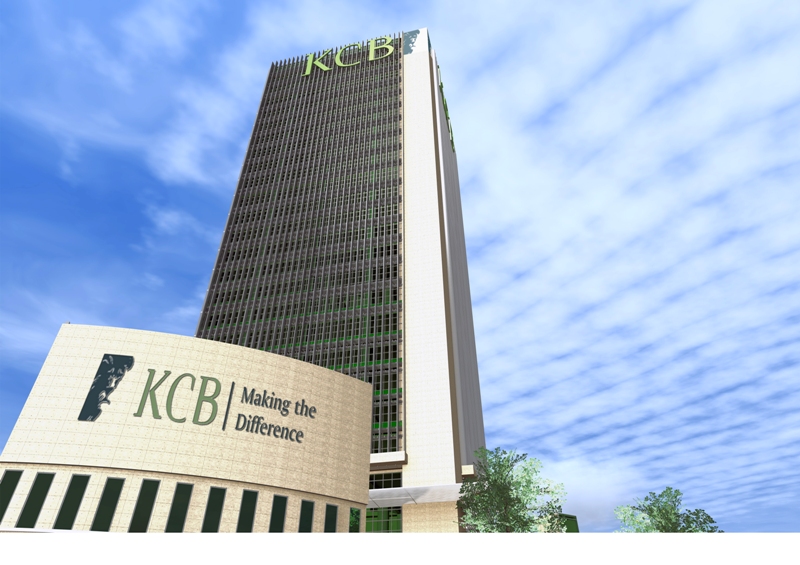Business & Money
Angola to Surpass Kenya’s Economy in IMF 2024 Forecast
Angola’s economic surge is fueled by a mix of factors, primarily the recovery of its oil sector and significant strides toward diversifying its economy. After a period of decline, the country’s oil production saw a sharp rebound in 2023, with rising global oil prices boosting revenues. However, the Angolan government has also prioritized reducing its reliance on oil by making substantial investments in agriculture, mining, and manufacturing, aiming to build a more balanced and resilient economy.

The IMF forecasts Angola’s economy to surpass Kenya’s in 2024, signaling a shift in Africa’s economic landscape. Discover the factors driving Angola’s rapid growth.
By Charles Wachira
In a surprising shift in Africa’s economic landscape, Angola is expected to overtake Kenya as the third-largest economy in Sub-Saharan Africa, according to the latest forecast from the International Monetary Fund (IMF), released on october 23.The IMF projects Angola’s economy to reach $122 billion in 2024, edging past Kenya, which is forecasted to maintain a GDP of around $119 billion. This marks a significant turnaround for Angola, a country whose economy has long been dependent on oil exports but has recently diversified into other sectors.
Angola’s Economic Surge: Oil and Beyond
Angola’s rise is being driven by a combination of factors, most notably the recovery of its oil sector and major efforts to diversify its economy. The country’s oil production rebounded sharply in 2023 after a period of decline, with higher global oil prices boosting revenues. However, the Angolan government has also focused on reducing its dependency on oil, investing heavily in agriculture, mining, and manufacturing to create a more balanced and resilient economy.
“The oil industry has always been central to Angola’s economy, but we realized the need for diversification,” said Angola’s Minister of Finance, Vera Daves. “In the past five years, we’ve made deliberate efforts to invest in infrastructure, education, and agriculture. We believe this has laid a strong foundation for sustainable growth.”
Kenya’s Slower Growth Amidst Economic Reforms
Meanwhile, Kenya’s economic growth has slowed in recent years due to a mix of domestic and external challenges. Rising public debt, coupled with high inflation and a weakening Kenyan shilling, have tempered the country’s ability to maintain its previously robust growth. Additionally, the country has faced disruptions in key sectors such as agriculture, which has been affected by erratic weather patterns and global supply chain issues.
Kenya’s Treasury Secretary, John Mbadi, acknowledged the challenges in a recent address to parliament: “While Kenya remains a strong economic hub in East Africa, we are dealing with a series of structural reforms aimed at addressing our debt levels and creating a more conducive environment for private investment. These reforms take time, but they are necessary for long-term stability.”
Despite this, Kenya’s service sector, particularly in telecommunications and financial services, continues to thrive. Safaricom, the country’s largest telecom company, has expanded its operations into Ethiopia, and the banking sector remains resilient. However, these gains have not been enough to offset challenges in other sectors like manufacturing and agriculture.
A Shift in Regional Economic Power
Angola’s projected overtaking of Kenya underscores a broader shift in Africa’s economic dynamics. Traditionally, Kenya has been seen as a leading economic power in East Africa, boasting a diverse economy with a strong service sector, robust financial institutions, and a burgeoning technology scene. However, Angola’s rapid recovery and diversification efforts reflect how resource-rich countries can quickly catch up when they invest in non-oil sectors.
Economic analysts note that this development is a sign of the growing competitiveness across the African continent. “Angola’s rise shows how African economies are becoming more dynamic and adaptable,” said David Ndung’u, an economist at the University of Nairobi. “Countries that were once heavily dependent on one sector are realizing the benefits of diversification and are seeing faster economic growth as a result.”
What This Means for Africa’s Economic Landscape
The shift could alter the balance of regional influence, especially in East and Southern Africa. While Kenya remains a key player in the East African Community (EAC), Angola’s growing economic clout will likely enhance its role within the Southern African Development Community (SADC). Furthermore, with both countries being part of the African Continental Free Trade Area (AfCFTA), this change could impact trade relations across the continent.
Kenya’s position as a gateway for international investors into East Africa may be slightly diminished, though analysts suggest that Nairobi will still maintain its status as a business hub. However, as Angola continues to grow, it may attract more foreign investment, particularly in sectors like mining, infrastructure, and energy.
Looking Forward: The Road Ahead
Despite the challenges, both Angola and Kenya are poised for future growth, albeit on different trajectories. Angola’s emphasis on diversification and Kenya’s focus on reforms will shape their economic paths in the coming years.
Vera Daves remains optimistic about Angola’s future: “This is just the beginning. We believe that with continued investment in non-oil sectors, Angola can sustain this growth and become a major player on the global stage.”
John Mbadi, on the other hand, is focused on ensuring Kenya remains competitive. “We are taking the necessary steps to stabilize our economy and restore investor confidence. Kenya’s potential is undeniable, and we are confident that our economy will rebound stronger.”
As Angola prepares to take the lead over Kenya in the IMF’s forecast, the race for economic dominance in Sub-Saharan Africa is far from over. Both countries will continue to play significant roles in shaping the continent’s economic future, but for now, Angola has the upper hand in this high-stakes competition.
Conclusion
The IMF’s latest projections for 2024 mark a notable moment for both Angola and Kenya. While Angola is poised for a remarkable recovery, Kenya remains focused on overcoming its economic hurdles. This new ranking is a reminder that Africa’s economic landscape is evolving, with resource-rich countries like Angola embracing diversification and rising to the forefront. Whether Kenya can regain its position as a regional powerhouse will depend on its ability to navigate its current challenges and leverage its strengths in key sectors.
As the continent’s economies grow and adapt, both Angola and Kenya will be key players in defining Africa’s future on the global economic stage.
Keywords:Angola economy growth: Kenya economic forecast: IMF 2024 report: African economic power: Angola surpasses Kenya
Business & Money
Ethiopia Attracts $53.5 Million in Q1 Investments, Creates 8,700 Jobs

: Ethiopia attracts $53.5M in Q1 investments, creating 8,700 jobs. Growth driven
by reforms, with a focus on service and manufacturing sectors.
The Addis Ababa Investment Commission (AAIC) announced a promising start to the
2023/24 fiscal year, with 612 investors registering a combined capital of Birr 2.93 billion
($53.5 million) in the first quarter.
This reflects a 13% growth compared to the same period last year, signalling sustained
investor confidence despite economic challenges.
Speaking at a press briefing on November 30, AAIC’s Director of Communication,
Meseret Woldemariam, credited the growth to policy reforms and enhanced investor
facilitation.
“Our efforts to streamline investment processes and resolve bottlenecks are yielding
results. We remain committed to ensuring investors thrive in Addis Ababa,” she said.
SECTORIAL CONTRIBUTIONS
The majority of the newly licensed investors are in the service and manufacturing
sectors. The service sector includes hotels, tourism, and IT ventures, while the manufacturing
investments span electrical products, steel, wood, and textiles.
These investments have generated 8,707 jobs, comprising 770 permanent and 490
temporary positions created by newly licensed entities.
The AAIC has also initiated field monitoring visits to ensure operational readiness. “Our
team works closely with new investors to address challenges promptly, enabling faster
project rollout,” Meseret added.
CHALLENGES AND REFORMS
Investors continue to face hurdles such as foreign currency shortages and workspace
availability. However, the commission highlighted progress due to macroeconomic reforms,
particularly improving foreign currency access.
“We are actively collaborating with the Mayor’s office to address workspace issues
through professional support in rental solutions and operational guidance,” Meseret
explained.
Recent reforms in the National Bank of Ethiopia’s foreign exchange policy have also
been pivotal. In October, the central bank announced a 30% increase in forex allocation to priority sectors, a move welcomed by stakeholders.
EXPANSION PLANS AND PROJECTIONS
The AAIC aims to capitalise on the momentum, targeting Birr 15 billion ($274 million) in
investments by the end of the fiscal year. A new digital investment portal, launched in November, promises to reduce registration times by 40% and improve transparency.
“We are confident these initiatives will not only attract more investors but also deepen
the trust of existing ones,” Meseret concluded.
INVESTOR SENTIMENT
Prominent business leader Ahmed Yusuf, who recently launched a $3 million IT hub in
Addis Ababa, praised the commission’s efforts.
“The improvements in investor services and forex allocation are encouraging. We hope
to see more streamlined processes for licensing and operations,” he remarked.
As Ethiopia seeks to position itself as a regional investment hub, sustained efforts in
addressing investor concerns and enhancing infrastructure will be critical.
Business & Money
Ethiopia Eyes December Debt Restructuring After IMF Review

: Ethiopia’s December IMF review may unlock long-awaited debt restructuring,
crucial for economic reforms and stalled projects like the Koysha Hydroelectric
Dam.
Ethiopia’s much-anticipated debt restructuring prospects could gain clarity this
December, as the country awaits the second review under its four-year International
Monetary Fund (IMF) program.
The Extended Credit Facility (ECF), launched in August 2023, remains central to
Ethiopia’s economic reform and debt relief efforts.
Progress Toward Debt Treatment
Last week, Ethiopian authorities reached a staff-level agreement with the IMF tied to the
second review. A comprehensive report on this review is set for release in December, a month many stakeholders, including the National Bank of Ethiopia (NBE), view as pivotal for
advancing debt treatment plans.
“Debt restructuring stands at the centre of our reform agenda. With the report’s release,
we expect rescheduling talks to gain momentum,” said Habtamu Workneh, Director of
External Economic Analysis & International Relations at the NBE.
He added that discussions are focusing primarily on extending maturity dates for Ethiopia’s debts.
IMF Support and Engagements with Creditors
The IMF has provided Ethiopia with USD 2.5 billion under its current fiscal program,
offering critical support to the country’s macroeconomic stabilisation efforts.
In parallel, Ethiopian authorities have engaged with Eurobond holders and the Official
Creditors Committee (OCC).
A debt restructuring proposal was submitted to Eurobond holders in July 2024, following
key discussions in December 2023 and May 2024.
Additionally, a global investor update held on October 1, 2024, highlighted the nation’s
ongoing economic challenges and progress in creditor negotiations.
Shifting Debt Landscape
The government has reported improvements in its debt profile. Planning and Development Minister Fitsum Assefa (PhD) announced that Ethiopia had ceased relying on commercial loans and direct borrowing from the central bank.
She noted a significant drop in the external debt-to-GDP ratio to 13.7 per cent, though
the IMF’s Debt Sustainability Analysis, published in July 2024, pegged the ratio at 18
per cent as of June 2023.
External debt accounts for 45 per cent of Ethiopia’s total public and publicly guaranteed
debt, the report stated.
Financing Challenges Persist
Despite these reforms, Ethiopia’s financing challenges remain acute.
The government is seeking nearly USD 1 billion to complete the Koysha Hydroelectric
Dam project, which has stalled at two-thirds completion due to funding shortfalls.
The project is a critical component of Ethiopia’s development strategy, but its delays
underscore the broader fiscal pressures the country faces.
Expert Views on Economic Outlook
While Ethiopian officials are optimistic about the December review as a turning point,
analysts caution that real progress hinges on creditor consensus and the government’s
ability to implement reforms.
Critics have also raised concerns about inflated GDP growth figures, which they argue
may distort Ethiopia’s true debt sustainability.
Looking Ahead
The IMF review, coupled with Ethiopia’s active engagement with creditors, could mark a
a significant step forward in its quest for debt relief.
December will likely be a defining month for the country’s economic future, with broader
implications for its ability to attract investment and complete critical infrastructure
projects.
Business & Money
KCB Group Surpasses Equity with US$ 342.31 Million Nine-Month Profit

: KCB Group reports Sh44.5B ( US$ 342.31) nine-month profit, outpacing
Equity Bank. Learn about its 49% growth, challenges, and stock performance this
year.
KCB Group Plc has outperformed Equity Bank to cement its position as Kenya’s leading
lender, posting a net profit of Sh44.5 billion for the nine months ending September
This represents a 49% year-on-year growth, surpassing Equity Bank’s Sh37.5
billion profit during the same period.
Profit Growth Driven by Core Business Performance
The remarkable profit growth was fueled by higher earnings from both interest and non-
interest income streams. KCB’s diverse revenue base has been pivotal in maintaining
its dominance in the competitive banking sector.
Non-Performing Loans a Key Concern
Despite the impressive profit growth, KCB’s non-performing loan (NPL) ratio rose to
18.5%, compared to 16.5% last year. This increase highlights persistent challenges in
managing credit risk, with Chief Financial Officer Lawrence Kimathi acknowledging it as
a “pain point” for the bank.
KCB Stock Outshines Peers on NSE
KCB’s strong financial performance has translated into exceptional stock market results.
The bank’s stock has risen 78.8% year-to-date, making it the best-performing banking
stock on the Nairobi Securities Exchange (NSE).
Plans to Sell National Bank of Kenya
Earlier this year, KCB announced plans to sell its struggling subsidiary, National Bank of
Kenya (NBK), to Nigeria’s Access Bank. While Nigerian regulators have approved the
deal, it is still awaiting clearance from Kenya’s Central Bank. The sale aims to
streamline KCB’s operations and address losses at NBK.
CEO Paul Russo Optimistic About Year-End Performance
“The journey has not been without its hurdles, but our ability to walk alongside our
customers has driven our success,” said KCB CEO Paul Russo. He expressed
confidence in closing the year on a high note, leveraging improving economic conditions
across the region.
Key Figures at a Glance
● Net Profit: Sh44.5 billion (+49%)
● Non-Performing Loan Ratio: 18.5% (up from 16.5%)
● Stock Performance: +78.8% year-to-date
KCB’s strong performance underscores its resilience in navigating challenges and its
commitment to sustaining growth in Kenya’s banking sector.
-

 Politics5 months ago
Politics5 months agoFred Okengo Matiang’i vs. President William Ruto: A 2027 Election Showdown
-

 Business & Money10 months ago
Business & Money10 months agoEquity Group Announces Kshs 15.1 Billion Dividend Amid Strong Performance
-

 Politics4 months ago
Politics4 months agoIchung’wah Faces Mt. Kenya Backlash Over Gachagua Impeachment Support
-

 Politics6 months ago
Politics6 months agoPresident Ruto’s Bold Cabinet Dismissal Sparks Hope for Change
-

 Politics7 months ago
Politics7 months agoPresident Ruto’s Lavish Spending Amid Kenya’s Economic Struggles Sparks Outrage
-

 Politics6 months ago
Politics6 months agoJohn Mbadi Takes Over Kenya’s Treasury: Challenges Ahead
-

 Business & Money2 months ago
Business & Money2 months agoMeet Kariuki Ngari: Standard Chartered Bank’s new CEO of Africa. What’s Next?
-

 Politics7 months ago
Politics7 months agoKenya Grapples with Investor Confidence Crisis Amid Tax Protest Fallout





